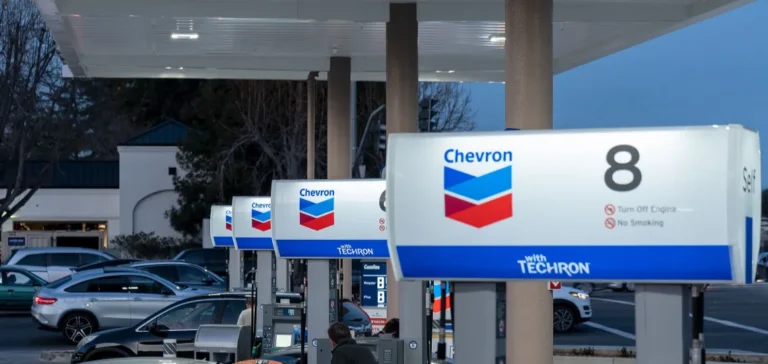American oil company Chevron, present in Venezuela for nearly a century, is subject to an exceptional derogatory regime under US economic sanctions. This special regime took a major turn with the modification of its operating licence, enacted in late July by US authorities, which now prevents the injection of dollars into the Venezuelan domestic economy.
Chevron, a central player in Venezuela’s oil economy
Until the revocation of its previous licence in February, Chevron accounted for between one-quarter and one-third of Venezuela’s oil production, playing a key role in the influx of foreign currency. Under that framework, the company was authorised to convert its oil revenue into bolivars (local currency) through the private sector, indirectly supplying US dollars to the Venezuelan government.
The new framework prohibits Chevron from transferring dollars directly to Venezuela. In exchange for its operations on Venezuelan soil, the company must now remunerate the state through crude oil deliveries, depriving the government of immediate liquidity in hard currency.
Ripple effects on the currency and internal balance
The mechanism shift has triggered a scarcity of dollars on the domestic market, increasing pressure on the bolivar and widening the gap between the official exchange rate and the black market rate. According to several economists, this gap now exceeds 40%, reducing purchasing power for a large part of the population.
Tamara Herrera, a Venezuelan economist, believes that the inability of the state to receive dollars directly represents a financial shortfall, forcing it to sell crude at discounted prices on alternative markets, sometimes in exchange for unstable digital currencies. Conversely, Elias Ferrer considers that this flexibility in managing crude independently strengthens the state’s control over its foreign currency revenues.
Instability amplified by the country’s structural weakness
Regardless of the Chevron licence, Venezuela’s economic fragility is rooted in over a decade of mismanagement, marked by overreliance on oil rents and the collapse of production. The US decision, though impactful in the short term, comes against a backdrop of pre-existing structural vulnerability.
The consequences of the new licence are nevertheless being felt immediately, with inflationary pressure increasing. According to local economists, as long as the state does not use its currency reserves to stabilise the national currency on the exchange market, inflation and bolivar devaluation are likely to continue.






















